Once again, Alex and Nick take a look at this year’s slate of Oscar-nominated films and try to reconcile the tumultuous state of affairs the world is in with a night where Hollywood throws it’s most garish party of the year.
N: Before we get to our picks, I asked you this question last year, and you gave me an answer referencing Rob Lowe and Snow White, but I wanted to ask you what you think people are going to remember about this year’s Oscars, either in terms of the ceremony itself or the films nominated?
A: I think people are going to remember all of the celebrities who passed away in the last year.
N: Fair point. Way to start things out on an apolitical note. Let’s just dive right in, because we’re not going to make any political references whatsoever.
A: Absolutely not. We’re not part of the Fake Media.
BEST PICTURE
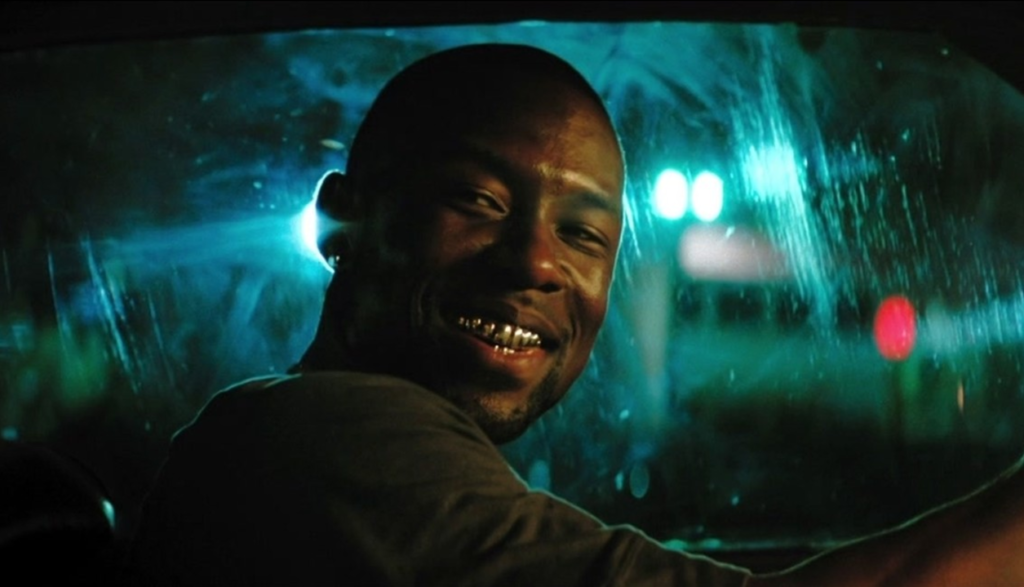
N: All things considered, with maybe one or two exceptions, I think this is a fairly strong lineup of films from the United States that we have this year nominated for Best Picture. Now, many prognosticators are predicting La La Land and I would not bet against that from being a sure thing.
A: Neither would I.
N: With that in mind, in regards to La La Land and the trend the Academy has displayed over the last few years of self-aggrandizing their industry with movies like Argo, The Artist, and Birdman, I think it’s a better film than any of these past winners. I think it would make a fine winner and is a charming throwback, in many respects. However, I do think a film that looks much more towards the future of American Cinema, both aesthetically and socially, is Moonlight. Would you agree with that assertion?
A: Yes. If I were to rank any of these films above the rest, it would be Moonlight. I love La La Land, but I think Moonlight speaks to many important issues, including identity masculinity in regards toward race as well as being a gay person of color in the United States. I feel it’s important to tell these type of stories, and I wish we had more movies like this which are just as mature and for adults. I think we need those in these times.
N: Oh, absolutely. And we do need films that speak toward a particular subset of America without condescension, because it’s one thing to have a film like Hidden Figures which tells an incredible true story that becomes homogenized and diluted for the sake of mass consumption. And it worked like gangbusters, because the film became a box office hit, but I think Moonlight is the more socially transgressive and lasting film.
A: Hidden Figures isn’t a bad film, but it feels so consciously manufactured to be a crowd-pleaser in contrast to something as pure and true as Moonlight.
BEST DIRECTOR
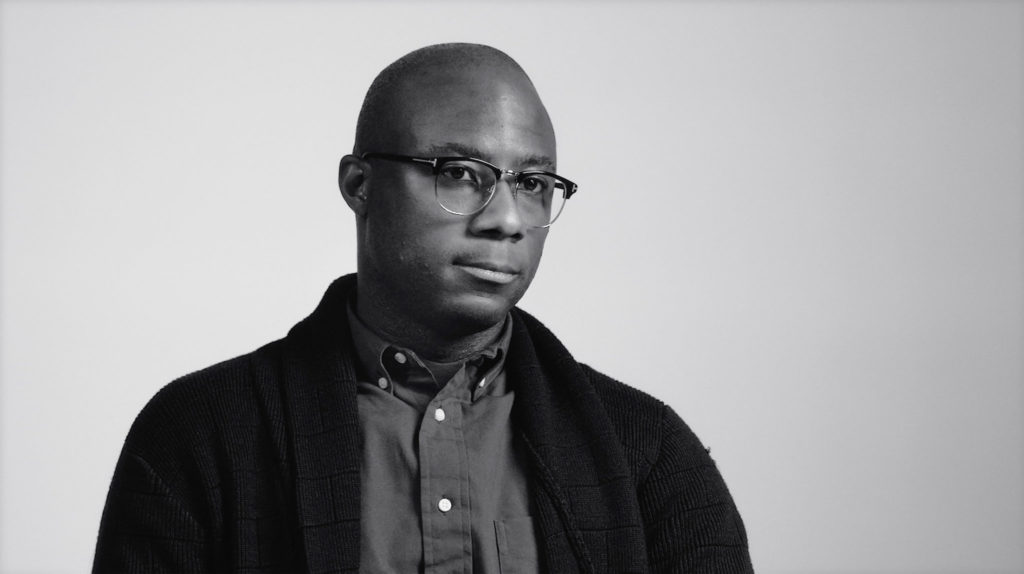
N: This is a very interesting line-up because many of them, from Denis Villeneuve to Mel Gibson, all tackled varying issues in their own ways from religion to dialectics. Even with the weakest of the pack, I think it’s fascinating seeing these filmmakers take their own idiosyncratic approaches toward discussing a number of issues which are quite relevant in America right now. Even with a film as seemingly apolitical as La La Land, I think it captures certain component of the American commonwealth that is looking ever toward a romanticized version of the past. I think the film is intelligent about how it regards the past, but nevertheless I think it does capture what many Americans are feeling in terms of making their country… what’s the adjective I’m looking for?
A: “Fantastic”? Make America Fantastic Again?
N: Exactly. Thank you. But what are some of your thoughts?
A: One thing I will say that I like seeing with this group of nominees is that all of them are talented filmmakers. They all display a great deal of skill and craft, and I enjoy seeing this variety of approaches toward storytelling. Even with a filmmaker we don’t very much care for like, say, Mel Gibson.
N: With that in mind, who do you think deserves the win here?
A: I would go with Barry Jenkins. I know that some might argue that Damien Chazelle had to juggle a compelling love story with elaborate choreography and musical numbers for La La Land, and it was very impressive. But I think there was something equally complicated in drawing great drama in quiet moments from your actors.
N: By that token too, it’s important to note that all three actors who played the lead character of Chiron in Moonlight never saw the footage of each other. So they never deliberately modeled their performances after their predecessors or successors, and it’s down to Jenkins as a director. And I think it was masterful the way he made these actors, who don’t really look alike, have the seamless illusion of being the same person over the course of two hours. And that’s a testament to both the brilliant performances and the way Jenkins probes his actors to reach into their deeper wells of empathy and compassion. And that isn’t including any of the technical components of the film, which we may or may not get to later, but I agree. Jenkins would be my choice, too.
A: One could say that Kenneth Lonergan does similar work with his actors in Manchester By the Sea, but I think Jenkins is more worthy because he’s able to make a very lyrical portrait of this human drama.
N: And it’s not every filmmaker who can take cues from Wong Kar-Wai and Terrence Malick and not seem like they’re purely mimicking their peers but rather making the style essential to the story they’re trying to tell.
BEST ACTOR
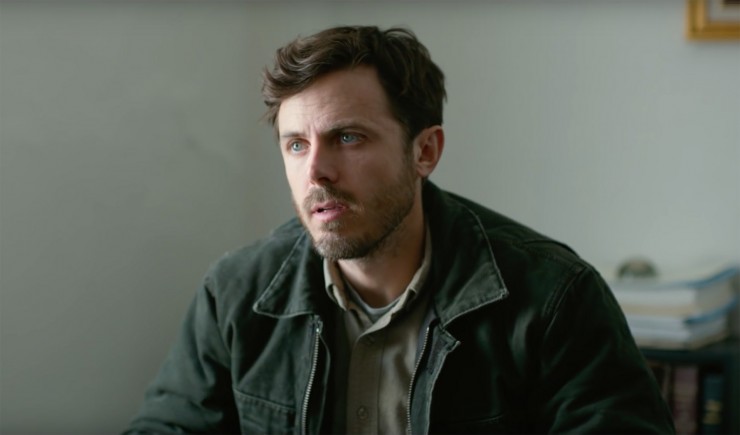
N: Now here’s an interesting development. Up until a few weeks ago, it seemed like this was Casey Affleck’s award to lose. Then Denzel Washington won the Best Actor prize from the Screen Actors Guild, and now the race seems too close to call. And it may be attributable in part to the revived allegations of sexual assault that have been lobbied at Affleck from several years ago, but putting aside any of these extrinsic factors, which performance would you say is more worthy?
A: It’s funny you ask me to split it between those two because all of these actors do great work.
N: Oh, absolutely. Andrew Garfield did strong work in Hacksaw Ridge, even though I think he was nominated for the wrong film, and Viggo Mortensen is one of those reliable character actors who has proven he simply doesn’t give a damn about fame.
A: And looking at his performance in Captain Fantastic, he really makes the entire film work because his performance really works. But looking at Washington, I think his performance is a little too theatrical at times, and I think that’s in part because he directed the film like a play.
N: Well, I was going to say that he performed the lead role on Broadway for several years, didn’t he?
A: Yes, he did.
N: So that would suggest a familiarity with the material. Would you say that he’s ultimately a little too reverent of it in translating the play to the screen?
A: Perhaps, and I think for the film he could have found several ways to make it more visually dynamic, although the cast was very strong. But among all the nominees, I would pick Casey Affleck, because all controversy aside, I know that this may seem like a performance he is used to playing, almost like his role in The Assassination of Jesse James By the Coward Robert Ford. But I still think it’s a very difficult role, and the way he handled the character who is so crippled with grief with such nuance and grace is truly remarkable.
N: I agree. The only thing I have to add about Casey Affleck is that in the film, as per Lonergan’s writing, he has to oscillate between moments that are comedic and deeply tragic, and, without giving away too much for those who haven’t seen the film, to display a subtle contrast between the version of his character, Lee Chandler, in the flashbacks peppered throughout and the Lee Chandler of the present who is much more of a husk. Affleck never adds bombast where there is none needed, and the result is a portrait of a person who has internalized so much grief and anger that it has, in many respects, killed him. Saying that, it may sound trite, but the way Affleck plays the character, it’s very easy to forget he’s acting and he never breaks the spell he casts.
A: And that’s ultimately the difference between him and Washington. I could notice parts of where Washington was ‘acting’, but I never felt that way with Affleck.
BEST ACTRESS
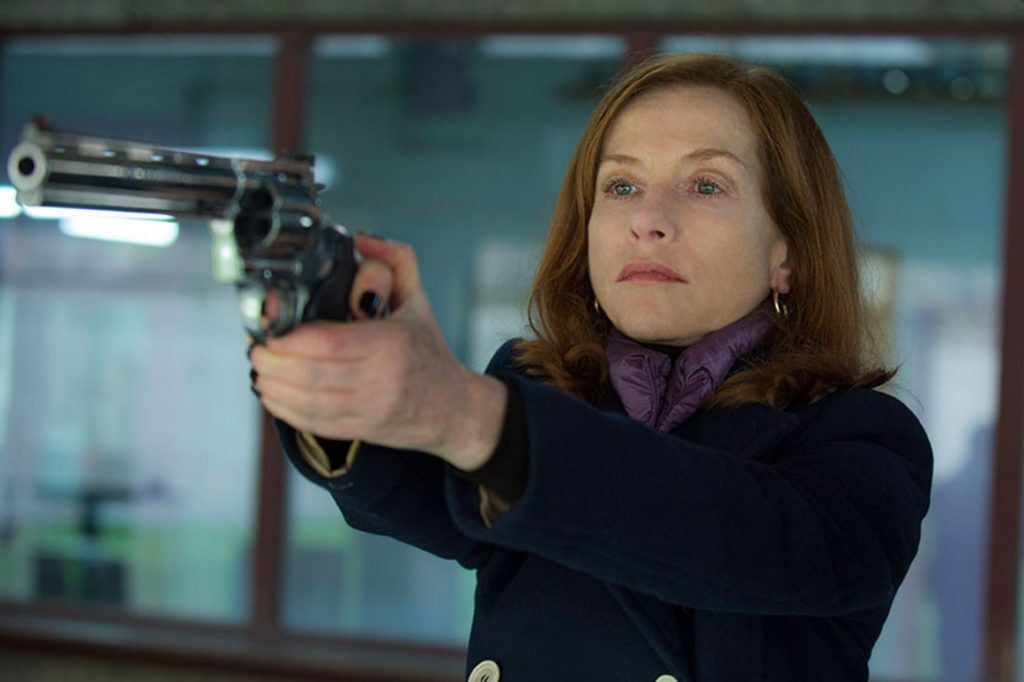
N: A note of interest about this category is that it has become dominated with the narrative of Emma Stone finally winning an Oscar, and truth be told I would not be terribly upset if she won. I think she’s a delightful actress, she’s charming and charismatic and is one of the very best parts of La La Land. She conveys a great deal of warmth and vulnerability that’s incredibly natural and not overly forced. Whatever shortcomings there are in the script, she is able to surpass them. But do you think that she should win?
A: Well, I will say that I loved her in the film, but I wouldn’t pick her. I think all of the nominees in this category are terrific, actually. It’s very difficult to choose one standout here, but if I had to I would go with Natalie Portman in Jackie.
N: Really?
A: Yes. Even though we have a character who is based on a famous real-life person, what we have here is something similar to Casey Affleck in Manchester By the Sea in the respect that we are watching someone cope with grief. What’s different is that the grief is still fresh only a few days after the traumatic event. And what I thought Portman did so well was the way she progresses through the different stages of grief, from crying to attempting rationalize what has happened, all while capturing the cadence and poise and grace of the real Jacqueline Kennedy.
N: That’s very interesting. I will say that I am with the camp in support of Isabelle Huppert, and that’s because her role in Elle is an extremely difficult one. It could have gone very wrong very quickly very easily, and the thing is that the film is not an easy one to watch. Anyone who is somewhat familiar with Paul Verhoeven’s work should know that what they’re getting into is something that is provocative and polarizing. And it all comes back to the lead character who is very much an unpleasant person, but I think Huppert is able to pinpoint the modicum of humanity, however rotten that may be, in a person who is striving to retain power when so much of her life has been dictated by others. It isn’t an entirely sympathetic or easy film to watch, but it is completely captivating throughout, and that wouldn’t be the case if an actress of a lesser caliber than Huppert played the role.
A: From Stone to Portman to Huppert, all of these actresses carry the success of their respective films on their shoulders.
BEST SUPPORTING ACTRESS

N: Speaking of which, looking at the sheer presence that these actresses have in relatively small roles is really quite remarkable. Although they may not have as much resting on them in comparison to the leading ladies, these performances nevertheless leave such a profound impression and each of these films would be lacking something if they weren’t playing the parts. I think the ones I have seen are all tremendous, and I have great difficulty choosing someone. You have seen all of the nominees, correct?
A: Yes, though I’d like to point out one issue with this category that irks me. In the past, there has been a tendency to nominate an actress who some may perceive as more worthy of being under the category of a Leading Role, like Alicia Vikander in The Danish Girl. I am convinced the same can be said of the front-runner in this category, Viola Davis in Fences, who actually won the Lead Actress award at the Tony’s for this very role. But of all the actresses here, I would give the award to Naomie Harris. It’s another tricky role that is defined by extreme emotions and terrible actions that could have painted her character as purely a monster. But thanks to Barry Jenkins’ screenplay and direction Harris’ performance, she comes across more as a pathetic human being.
N: You know, it’s interesting to note that we had a conversation with a mutual friend the other day who had just seen Moonlight and generally liked the film, but was very critical of Naomie Harris in the film. It was his opinion that the film was deliberately directing the audience toward detesting the character, and I disagreed. I think what Harris does in the film is act out the archetype of the drug-addict mom, which is an all-too prevalent trope in these films, and locates the desperation and anger that makes her recognizably human. And by the end of the film, what we are left with is someone who does not require our sympathy nor hatred but merely to be seen, because there are so many women in this country like this character who are barely acknowledged, and that’s tragic not just for them but for their families and for everyone within their periphery stuck in a cycle of misery which is, more often than not, completely dismissed.
BEST SUPPORTING ACTOR:

N: Speaking of Moonlight, it looks like Mahershala Ali is the front-runner here, much to my surprise considering he’s only in the first third of the film. Do you think he’s deserving, or do you think it should go to another actor here, some of whom do some of the best work of their careers?
A: Well, the fact that you mentioned how sparingly he’s used proves just how strong Ali is as an actor, because although he’s only in the first third his absence is strongly felt throughout. When we are with his character, we are invested in him and the growing relationship he fosters with Chiron as well as the problematic connections they have within their world. It’s a very humane performance, and I think he deserves it.
N: I agree. I would say the only other actor here who does as good a job as Ali is Jeff Bridges in Hell or High Water. I mean, they’re extremely different films and characters, yet they both are, in many respects, beacons of morality, although their ethics are complicated by their actions and the company that they keep. I just briefly want to also acknowledge the strong work of Trevante Rhodes in Moonlight, who I only took full notice of on a second viewing. While all the actors who play Chiron are terrific, Rhodes is the most compelling one in the way he balances his intimidating physique with a face beset by loneliness and sorrow.
BEST ADAPTED SCREENPLAY
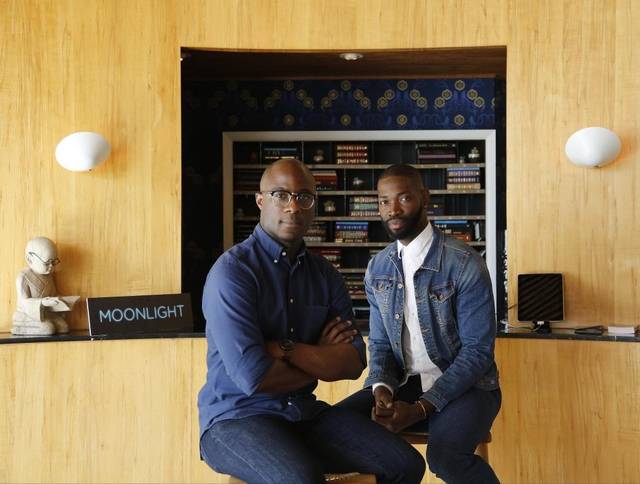
N: The fact that the line, “Everyone pees the same color at NASA” is Oscar-nominated instills very mixed feelings within me. It saddens me that some other worthy screenplays, notably Martin Scorsese and Jay Cocks’ work for Silence, are completely absent here. That being said, I think we have some very strong contenders here, including Arrival which expands upon the original short story it was based upon with bravado. However, I would pick Moonlight, if for nothing else that I think it had a better screenplay than Arrival. The latter has several threads which aren’t as strongly developed as they could have been, and ultimately what Moonlight accomplishes on a structural level is audacious, especially in how it pinpoints three specific moments in the life of a young man that nevertheless craft a vivid composite of who he is.
A: I would also give it to Moonlight, and I think it’s the film that will win. Arrival might have stood a chance had Moonlight ended up being nominated in the Original Screenplay Category, but Barry Jenkins’ script makes these characters vivid and fully-realized. It’s the worthier screenplay, I agree.
N: That and the way the story deals with several themes that could be seen as universal yet it specializes in such specificity in the way it details life in that subsection of Miami from the 1980s to the present that feels very personal.
BEST ORIGINAL SCREENPLAY
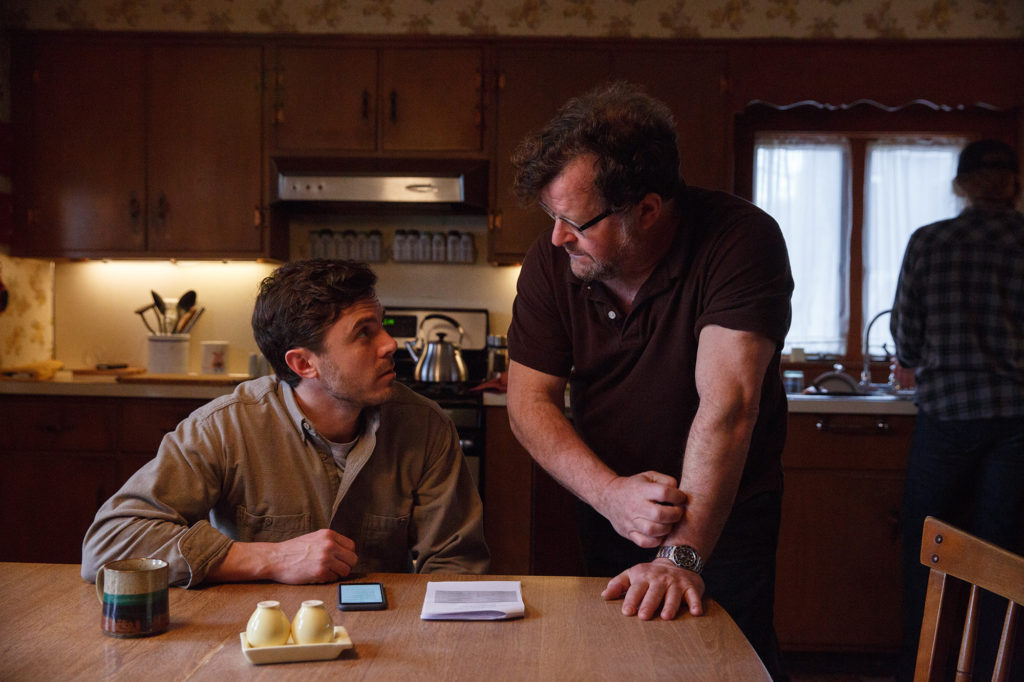
N: Speaking of specificity, that’s certainly playing into my decision for this category. Funnily enough, the one that is weakest is the one I think is primed to win, La La Land. I think Chazelle’s extensive knowledge of film and jazz history don’t always compensate for the sometimes strained mechanizations of the decisions it’s characters make. That contrasts strongly with a film like 20th Century Women, which feels more like a portrait of a very real group of people that could have lived in 1979. My choice, however, is Kenneth Lonergan’s script for Manchester By the Sea. I’ve been a fan of Lonergan since seeing Margaret for the first time, and the script here recalls the style of Robert Altman which replicates the stilted cadence and rhythm of quotidian conversation. And what makes this script, as with his other work, so remarkable is the way he contrasts the everyday with the almost operatically tragic. There are some extraordinary circumstances that occur in the film that are almost Dickensian, but it never feels overburdened. Lonergan has such an acute understanding of who his characters are that it reveals an understanding of people that makes this script stand out.
A: I agree. I just wanted to say that one flaw I think Damien Chazelle has as a writer, in spite of his technical proficiency as a filmmaker, is the lack of attention he pays to his supporting characters in comparison to his leads, which was also an issue with Whiplash. Lonergan, conversely, has so much nuance in the way he crafts his characters that they and the world they live in feels fully realized. Even the minor characters leave an indelible impression and seem like they exist beyond the periphery of the main story.
N: Like Jim Jarmusch in a way.
A: Or Asghar Farhadi, yes.
BEST ANIMATED FEATURE FILM:
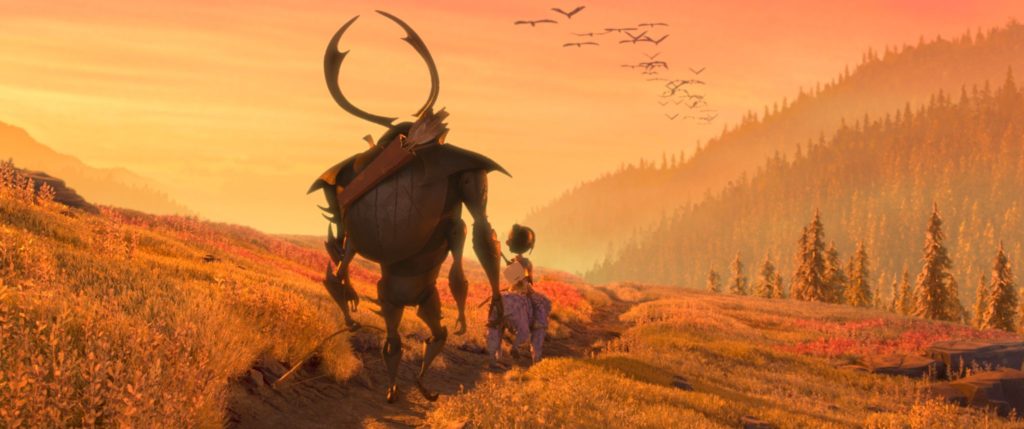
N: Over the last few years, the Academy has explored more nominees in this category that aren’t from the United States or that are only geared towards children, and the same can be said here with the inclusion of My Life as a Zucchini and The Red Turtle. With that said, it looks like Zootopia is the front-runner for this category, and I can understand why. It’s even more relevant, in many respects, now than when it was first released last March, and I can see the temptation in choosing this film as a way for the Academy to feel politically savvy and pleased with themselves for trying to be socially conscious. That being said, I don’t think Zootopia deserves the film. It’s a good, if flawed film that tries to initiate a dialogue about contentious subject matter that is somewhat accessible for children, but my personal choice would be Kubo and the Two Strings. It is, in my opinion, the equivalent of an art film for children. It’s a gorgeous and haunting film that never patronizes its audience in the way it confronts death.
A: Even though I can’t speak on behalf of The Red Turtle or My Life as a Zucchini, though I believe they were released in the United States by GKids, which has had several films nominated in this category over the last few years. One aspect of this category that I take exemption with is how Disney and Pixar have, in many ways, held a monopoly on the category, especially in recent years. Though I liked Zootopia and Moana, I would also have to go with Kubo and the Two Strings. The work that Laika does with the film is not only gorgeous but also mature in a way that is more of a callback to darker animated fare like The Secret of NIMH that juggle a dark story with messages of love and hope.
N: I’ll certainly put it this way; I have never seen an animated film aimed for children whose ending reminded me so strongly of the end of Mizoguchi’s Ugetsu.
BEST CINEMATOGRAPHY
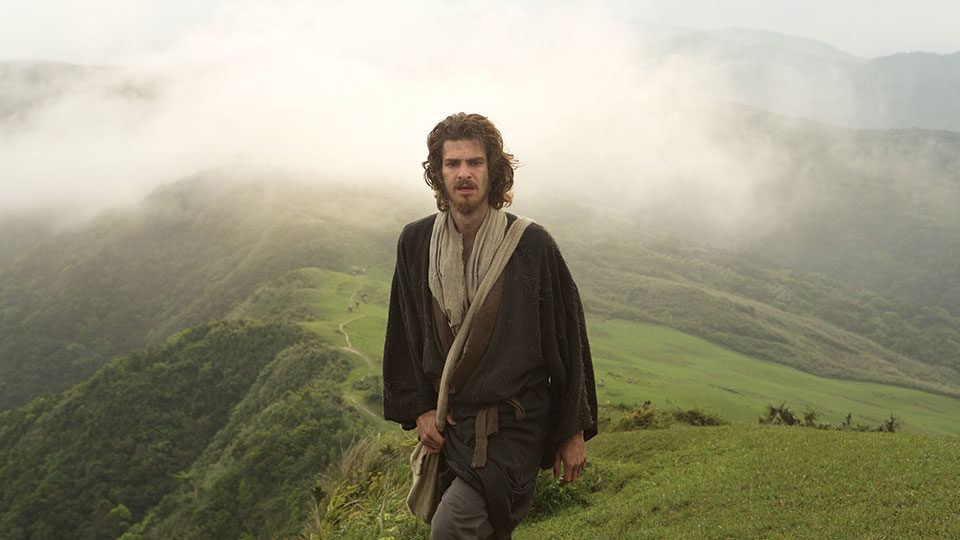
N: There was a great deal of strong cinematography this past year, including several films that weren’t nominated like Hail, Caesar! or The Witch. But I think the lineup we have is fairly strong, and it looks like another category for La La Land to win. While the camerawork in the film is impressive, from its extended takes composed of tracking shots via crane or steadicam, all in tandem with the elaborate dance choreography more often than not, I don’t think it’s the most deserving film here. I would personally go with Moonlight because it is so beautifully shot and boldly vibrant with its color palette, but it doesn’t undermine the grittiness of the story unfolding. Rather, it serves to convey the sensitivity of the lead character which he himself is not necessarily able to convey in words. And really, what else is the camera for other than expressing that which cannot be directly spoken in words?
A: Absolutely. It’s an extremely important component of the entire filmmaking process. Although I really admired the work done for Moonlight, I would go with Rodrigo Prieto’s work on Silence, and not only because this is the only category where the film was nominated. There are several images from the film that have ingrained themselves within my mind and have stayed with me since I saw it. It reminded me a lot of how 12 Years a Slave captured a banal beauty with it’s cinematography.
N: Well, it’s certainly important to note that there are very few scenes in the film that aren’t shot outdoors. Scorsese and Prieto make extensive use of the bucolic vistas they capture.
A: And don’t forget, the cinematography also conveys the mood and some of the subjectivity Scorsese is exploring within the film. Consider the POV shot of Andrew Garfield’s character in the cage as he helplessly watches the violence unfolding before him.
N: And the wonderful thing about the film is how restrained it is in the camerawork so that when there are more stylistic flourishes like this, they stand out even more.
BEST COSTUME DESIGN
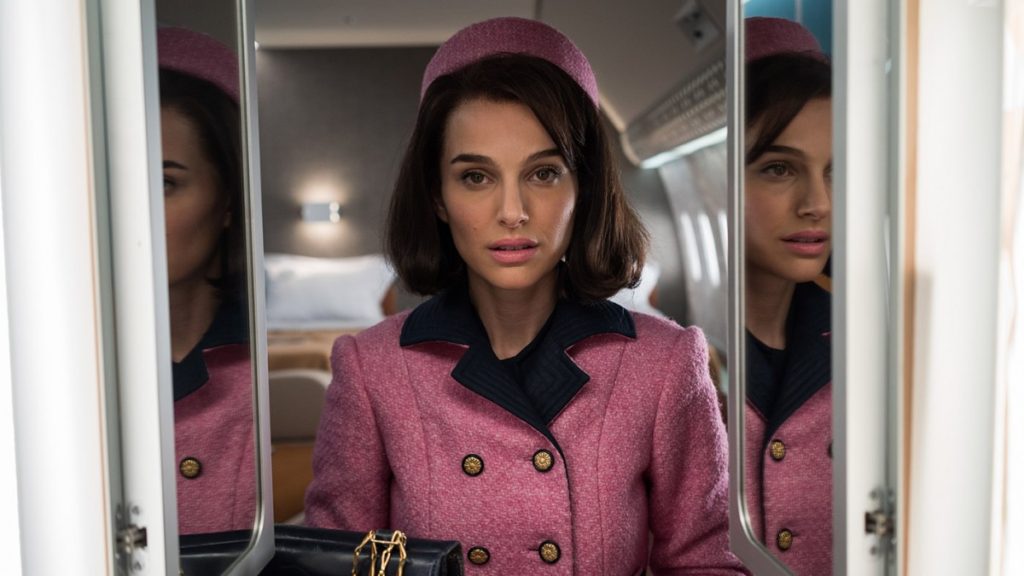
N: Hmm… I must confess that I have very little investment in this category. While there is some strong work here, nothing is as exciting as in years past with nominees like Mad Max and Inherent Vice. I am fairly confident that La La Land will win here as it will sweep many technical categories. I thought the costumes worked for the film in how they synergistically combined contemporary and retro fashion, almost like Jacques Demy in the 21st Century. What are your thoughts?
A: Well, the costumes done for La La Land were done by Mary Zophres, who has also done work with the Coen Bros. on some of their films, including Hail, Caesar! Ultimately, however, I would pick Madeline Fontaine for her work on Jackie, primarily because the costumes were so close to the real-life wardrobe of Jacqueline Kennedy. They replicated the look and style of that era so closely.
N: But it’s certainly more than just a really expensive form of cosplay?
A: Oh, certainly. If anything, it feels more like we were transported back to 1963 and witnessing these events as they unfold.
N: I would imagine it would be difficult to do costumes for this film considering how iconic Jacqueline Kennedy was, especially in regards to her sense of fashion, while also having a distinct impact for the sake of the film.
A: Well, I think Fontaine pulled it off almost effortlessly.
BEST DOCUMENTARY FEATURE
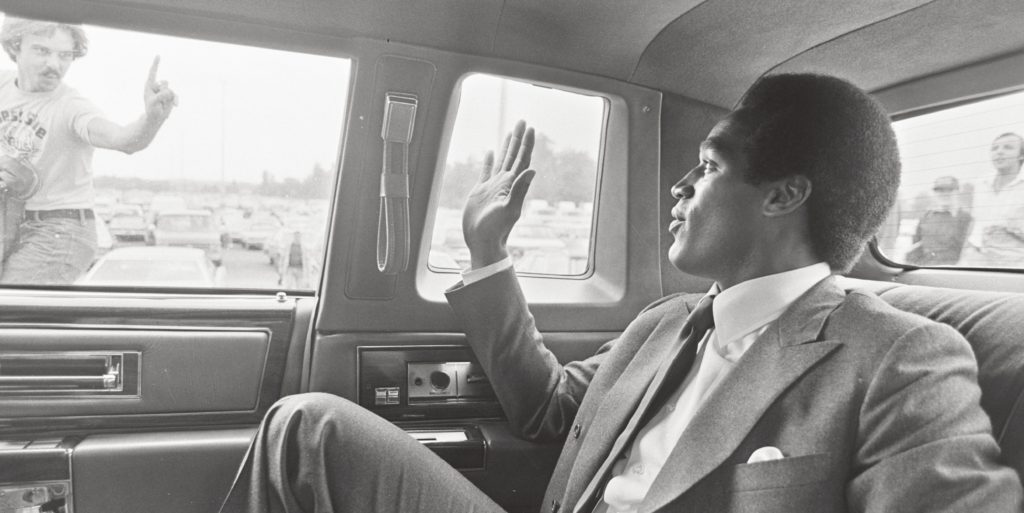
N: This has been a very interesting year for documentaries. While there are some notable omissions, like Terrence Malick’s Voyage of Time, I nevertheless think we have some very strong nominees here. The three front-runners are 13th, I Am Not Your Negro, and O.J.: Made in America. Of those three, two of them were in my top five films of the year, so this is a very difficult call for what I think should win. Ultimately, in spite of how extraordinary a documentary I Am Not Your Negro is in the way it tackles complicated notions not only of race and masculinity but of capitalism and the way we as a society process prepackaged iconography synonymous with these concepts in our media, O.J. does many of the same things but with the advantage of telling a singular story over nearly eight hours. What makes O.J.: Made in America so great is the way it functions as a work of journalism. It incisively probes the myriad factors that played into this almost Epicurean tragedy and all of the people operating within this epic story who are all fallibly human. When we have forces in this country attempting to diminish the value of the free press, a work of such extensive journalism like O.J.: Made in America would be a triumphant victory.
A: Well, I certainly loved I Am Not Your Negro, which at the time of this recording is playing at the Lagoon Cinema, and I highly recommend anyone who hasn’t seen it to make the trip out to catch it before it’s gone. But I think I’m going to side with you on this and go with O.J. It does have a longer running time, but it doesn’t feel excessive. Because the way it tackles a number of seemingly isolated issues is almost antithetical to the way we generally consume news and information in this country. Watching how the history of the LAPD coincides with the story of O.J. Simpson is really fascinating. I think the audience leaves this film feeling more enlightened in terms of connections we have with one another.
N: And again, I think it’s absolutely crucial that we have a film like this which prompts us to have a well-measured conversation about race and the police in this country which isn’t built upon rhetoric or platitudes but well-researched evidence, especially when our current vice-president just last fall discouraged the American people from having this conversation in the first place.
BEST DOCUMENTARY SHORT SUBJECT
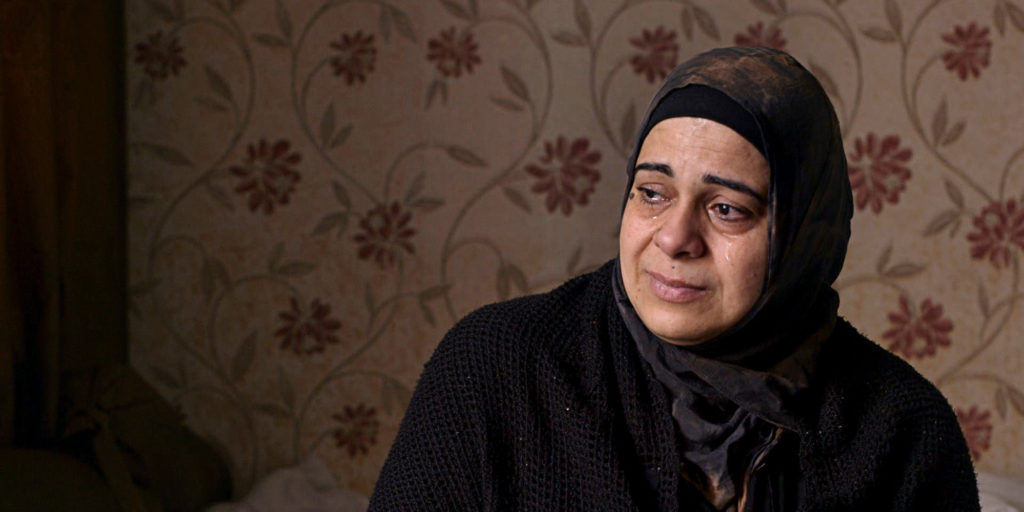
N: I must confess that I am completely in the dark about these films since I haven’t had a chance to see any of them. Thankfully, that’s why you’re here.
A: Yup!
N: So, in your esteemed opinion, which of these documentaries stands out among the rest?
A: Interestingly enough about this category, three of the films here deal with the Syrian Civil War. The one that impacted me the most was Watani: My Homeland, which is the longest one of the lot but uses it’s running time effectively to tell the story of a family fleeing from Syria after the patriarch, who is a freedom fighter, is captured by ISIS. The way it chronicles their transition to a new life in Germany reminded me strongly of The Emigrants in the way you become so close with this family and watch how they grow and change over roughly three years while still seeing traces of the ghost of the past. It’s a very remarkable film, and it would be my pick, though it’s possible that Joe’s Violin might win. It’s about an older Jewish man who teaches violin to several inner-city kids, and it’s certainly a feel-good film. But who knows? We’ll just have to see.
BEST ANIMATED SHORT FILM
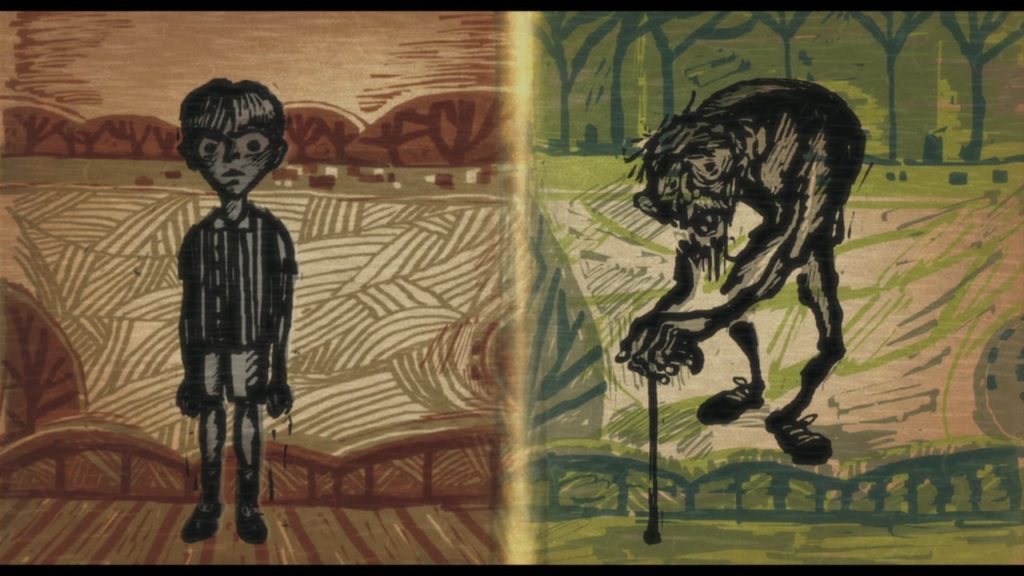
N: In a marked contrast from last year, where I saw all of the shorts in this category, I only came around to seeing one film here, the Pixar short Piper which played before screenings of Finding Dory. It’s a well-animated and gorgeous film, but do you think it’s worthy of a win here?
A: I don’t think so. Though it might win based on the cuteness factor alone, though Pixar’s track record in this category is less consistent than in the feature film one. I think Borrowed Time, which follows a sheriff grappling with despair and grief, could win it. What I would personally pick is Blind Vaysha, which is a beautifully animated adaptation of an old fable which recalls the style of Terry Gilliam. It tells the story of a girl with one eye that can only see into the past and another which can only see into the future, and watching the way her emotional turmoil is visually conveyed by the animation here is truly remarkable. It’s really something else.
BEST LIVE ACTION SHORT FILM
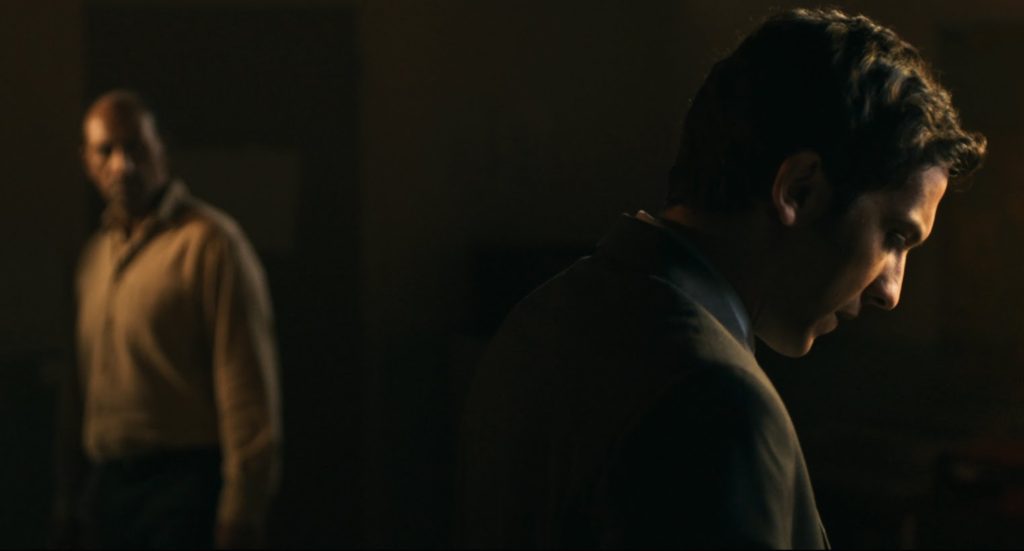
N: We’ll conclude this trifecta of humiliation, at least for me, by asking what you think some of the highlights in this category are.
A: Well, several of these films were fine, though they also erred on the side of cheesiness. The cheesiest might be Silent Nights, which follows a Danish family around Christmastime that I nevertheless got a kick out of seeing, if for nothing else just thinking of my own Danish relatives. But the film I think should and will win is Ennemis intérieurs, which relates the story of an Algerian man applying for French citizenship who is being grilled by a French official. Talking about the Academy picking a topical choice, I think this film would certainly be one of them in the way it addresses the Islamophobia prevalent in France right now. It taps into a nerve that I think will resonate with many voters and I think it’s a deserving film.
BEST FOREIGN LANGUAGE FILM
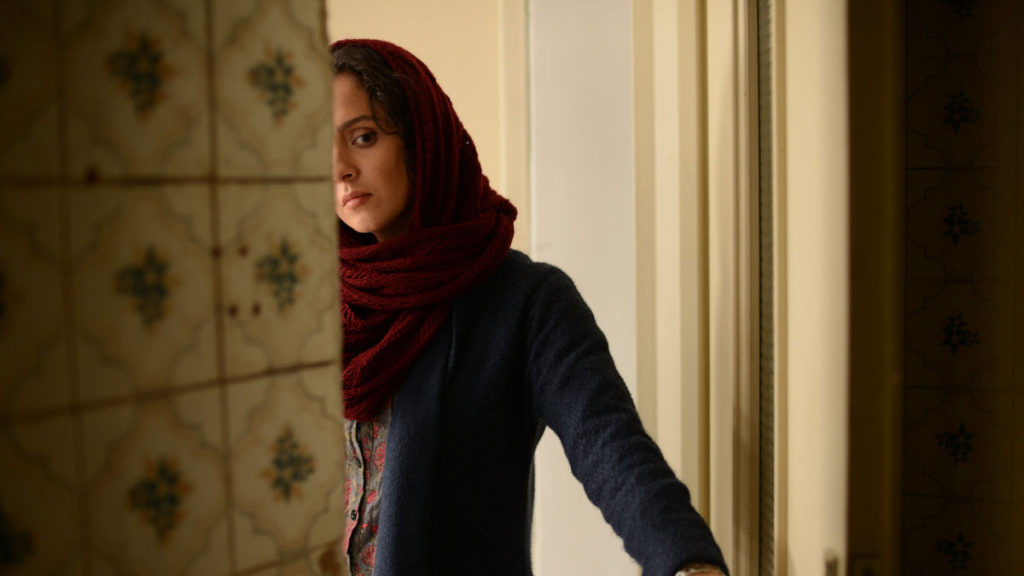
N: I think that’s a great spot to segue into talking about the Foreign Language category, primarily because for the longest time it seemed that the German submission, Toni Erdmann, was the front-runner, especially when Elle missed out on a nomination. And the way Maren Ade’s bizarre film confronts globalization and the generation gap within the European Union while traversing from comedy to deeply felt sadness would end up bringing it a much-deserved trophy. However, on January 27th, when our government made the proclamation that would ban members of seven nations throughout the world from entering the United States, including Iran, that affected Asghar Farhadi, who is nominated for The Salesman. And while it seems like an exception could have been made to permit him access to the ceremony, Farhadi declined on political grounds and as a form of protest. It’s a deep shame that the executive order has impacted the way the film has been received in this country, because on its own The Salesman is a strong film that utilizes elements of melodrama and even noir to subtly probe socioeconomic disparities existing within modern Iran and the specter of Western culture in that country, as well as what happens when you feel deprived of power within a predominantly patriarchal model? My hope is that the film will be valued on its own, but for the time being it looks like it will win as a form of defiance and tribute to one of their peers who they feel is being persecuted, which is the case.
A: Farhadi had a film that previous won in this category, A Separation, and while it was difficult for me to choose between The Salesman and Toni Erdmann, I would lean towards the former and not because of a protest vote. I would choose it because, in addition to what you said about the film, I think Farhadi’s strength as a writer and director is the way he creates these characters that have dimension and the illusion of a life which exists beyond the parameters of the frame. And he ultimately doesn’t give his audience easy answers to difficult questions, and as I’ve said before I firmly believe we need films like this now more than ever.
BEST FILM EDITING
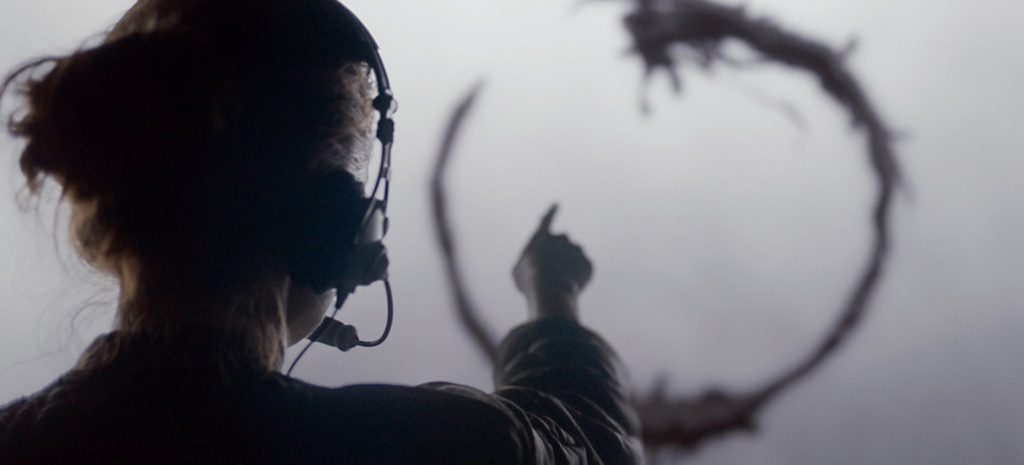
N: Although La La Land is the presumed frontrunner here as well, the film I think which poses the biggest threat to it here is Arrival. For anyone who has seen Villeneuve’s film, they know what I mean when I say that the editing serves to deconstruct a sense of linearity. And it is in service to the film’s greater themes and not just a mere gimmick.
A: You can say that editing is crucial for every one of the films nominated here, but I agree that it seems most important in a film like Arrival. It’s essential in presenting the way the story unfolds, and if it hadn’t been as superbly done then the impact the film has would certainly not have been as powerful.
N: That being said, I think I’m going to throw my support behind Moonlight because I think the editing in this film is, in some respects, more subtle than the other films here. The film is deliberately structured in a trifurcated presentation of almost vignettes that, on their own, would make strong short films, but in concert with one another provide a captivating portrait of a young person in critical moments of his life.
BEST MAKEUP AND HAIRSTYLING
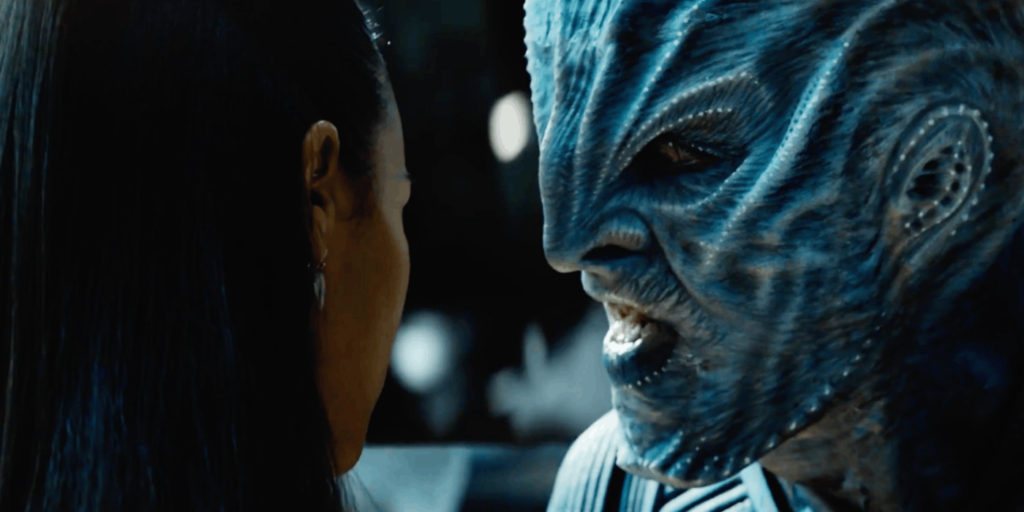
N: Now for a category we are both equally passionate about.
A: Uh-huh.
N: You’ll have a Best Picture nominee occasionally show up in this category, and other times you’ll just have an eclectic collection of films that somehow show up here. While I have not seen Suicide Squad, nor have an overwhelming desire to see it, I would lean towards Star Trek Beyond over A Man Called Ove. The work for Star Trek is solid enough, but I must confess I’m having difficulty mustering up a lot of enthusiasm for this category.
A: I know, there were a lot of good films that could have been nominated here like Florence Foster Jenkins or The Witch or even Deadpool. But I would also go with Beyond because it has the virtue of making Idris Elba virtually unrecognizable, at least until the last twenty minutes.
BEST PRODUCTION DESIGN
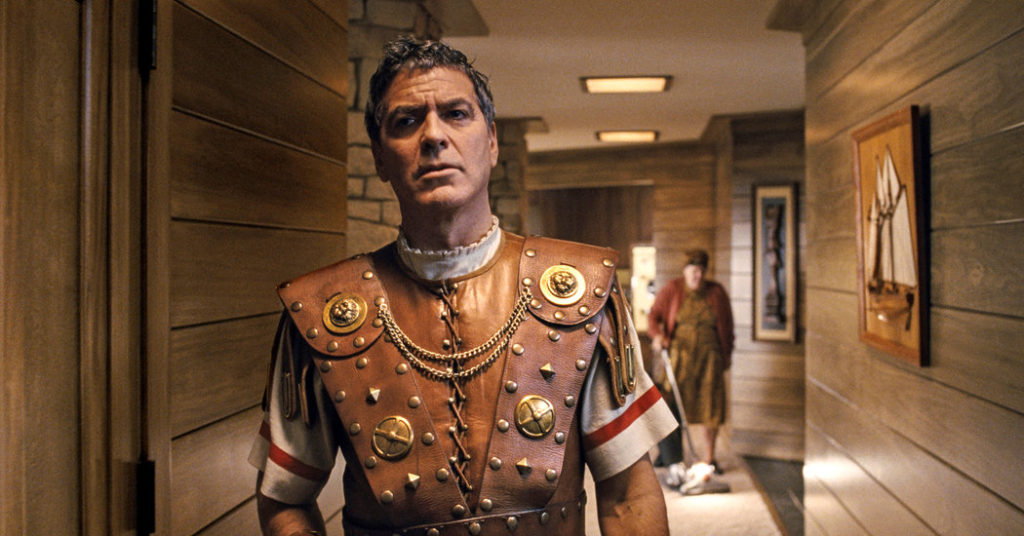
N: Again, this seems like a surefire win for La La Land. However, the one film in this category that is, in many respects, the outcast of the pack is my personal favorite, and that’s Hail, Caesar! I’m glad the work for the film was recognized here, because it is a film that specializes in very memorable sets that operate as both a nostalgic throwback to approximately three decades of Hollywood, the 30s, 40s, and 50s, while also encompassing the skewed, warped humor of the Coen Bros.
A: Hail, Caesar! would also be my pick. I would also like to mention some of the soundstages in the film which display some of the imagination at work, from the underwater musical set to the Roman sets for the titular film-within-the-film. It is a loving homage to Hollywood’s past while simultaneously poking the artifice of the entire industry, and the production design is critical to helping the film express that complex attitude.
BEST MUSIC (ORIGINAL SCORE)
N: This seems like a no-brainer with a major musical taking Hollywood by storm this year, but let’s take this one step at a time. Justin Hurwitz not only produces several earworms in the songs for the film, but his score is certainly melodic and a beautiful homage to the work of Michel Legrand, especially in his collaborations with Jacques Demy.
A: Certainly very jazz-infused but often elegant as well.
N: Now, as much as I enjoyed the score to La La Land, I would go once again with Moonlight, no surprise. The score by Nicholas Britell is absolutely intoxicating in the way it profoundly influences both the action of the film and how we perceive its central character. It is haunting and infused with ethereal beauty.
A: It is a very melancholic score, but my pick for best score would be Mica Levi’s work for Jackie.
N: Didn’t she do the score for Under the Skin?
A: Yes, as a matter of fact! Although that and Jackie are both very different films, the scores for both are exceptionally unnerving. With Jackie, the score ultimately reflects the emotional mindset its eponymous character undergoes, from a quietly patriotic horn and drum section that denotes this American ideal to an almost disarming sense of unease evoked by dissonant strings which convey her lack of balance in the wake of her husband’s assassination.
BEST MUSIC (ORIGINAL SONG)
N: What would have been the narrative for this category in another year would be Lin Manuel-Miranda possibly becoming the youngest person to ever win an Oscar, a Grammy, an Emmy and a Tony. However, Damien Chazelle and Justin Hurwitz have derailed that narrative with their little film that could, and it seems fairly easy to guess that La La Land will take this category. But which song will win? I think that Audition (The Fools Who Dream) is a lovely song, thanks in no small part to Emma Stone’s performance, City of Stars seems the likely winner here since it became iconic the moment the teaser trailer premiered.
A: My pick would be for Can’t Stop the Feeling.
N: …
A: I’m just kidding.
N: You leave Justin Timberlake alone.
A: But I would agree with you. City of Stars is a lovely ballad that is wistful in the way it evokes the sensation of first falling in love, though it certainly gains a newfound poignancy in the end credits as well as one in which a relationship is regarded through the prism of the past.
BEST VISUAL EFFECTS
N: The film that seems the front-runner, and by all rights should win, is The Jungle Book, primarily because 99.9% of it is computer-generated and 0.1% of it is a child actor who can’t really act. While the film utilizes some decent backdrops, the one film I would be delighted to see pull an upset would be Kubo and the Two Strings. For if we’re going to talk about the seamless integration of one element within a sea of special effects, I think it’s important to note how much of Kubo is comprised of CGI. While that may seem like cheating in the eyes of some, since it is an animated film, I think it is nevertheless extremely impressive witnessing the aesthetic consistency on display which prompts one to forget the difference between what is a 3D printed backdrop and what is digital.
A: What you’ve pinpointed, this seamless blend, is exactly why I would pick the film as well. While The Jungle Book has some impressive textures and character animation for the animals, I was more impressed with Kubo. After first watching the film, I was amazed watching special-effects reels and discovering how much computer animation was utilized. But I think any film that is so economic in its use of such digital trickery that you become invested in the story and become immune to distinguishing between what comes from a computer and what is hand-made certainly warrants a vote from me. Though I am very sad that The BFG wasn’t nominated in this category.
BEST SOUND MIXING AND BEST SOUND EDITING

N: I think both of these categories could very well go to La La Land, particularly because the sound branch has a tendency to award musical films from Les Misérables to Dreamgirls.
A: And just music-centric films like Ray or Whiplash
N: Right. But for both categories, in spite of La La Land’s strong sound, Arrival would be my choice. The sound in this film is absolutely critical in the sense of awe and apprehension Villeneuve and his crew strove to capture, and it certainly reveals the influence David Lynch has had on Villeneuve as a filmmaker, not simply in the surreal visual juxtapositions but in the sonic texture which ranges from quiet to eerily atonal.
A: Something a lot of Academy voters don’t understand, I feel, is that what makes a sound mix so effective isn’t purely how loud it is but rather the way sound is employed. It can be just as powerful to utilize silence that is punctuated by distinct sounds, like the click-clack of the aliens attempting to communicate in the film. I think Hacksaw Ridge will win Sound Editing, especially since war films do quite well in that category, though I would ultimately award Arrival for both categories.
N: Well, do you have any closing thoughts?
A: I hope Jimmy Kimmel enjoys himself, but I hope that after the awards people go see the movies we’ve recommended. Because as is per the norm, you’ll have some forgettable fare do well and other times these real treasures will be honored at the ceremony. Because being honored by the Academy is only a boost.
N: And ever since these award shows began, the greatest work in cinema endures, regardless of what accolades it receives. The Academy Awards are only a moment that transpires in a long and tumultuous history that is defined by a progression in cinema.
A: Exactly. While La La Land could win the most Oscars of any movie musical since West Side Story, Barry Jenkins could be the first African-American director to win the Oscar for Best Director.
N: It’s a night full of possibility.
A: Absolutely.
